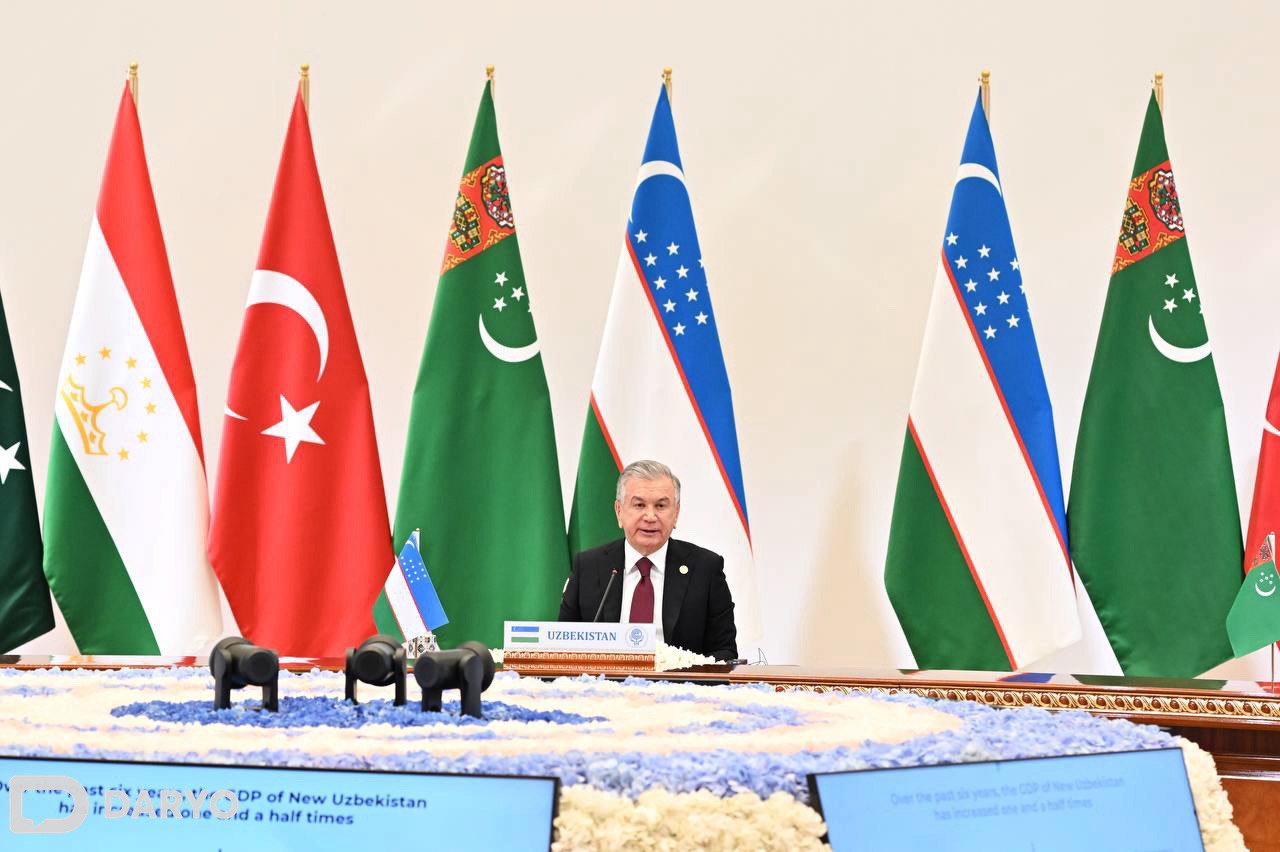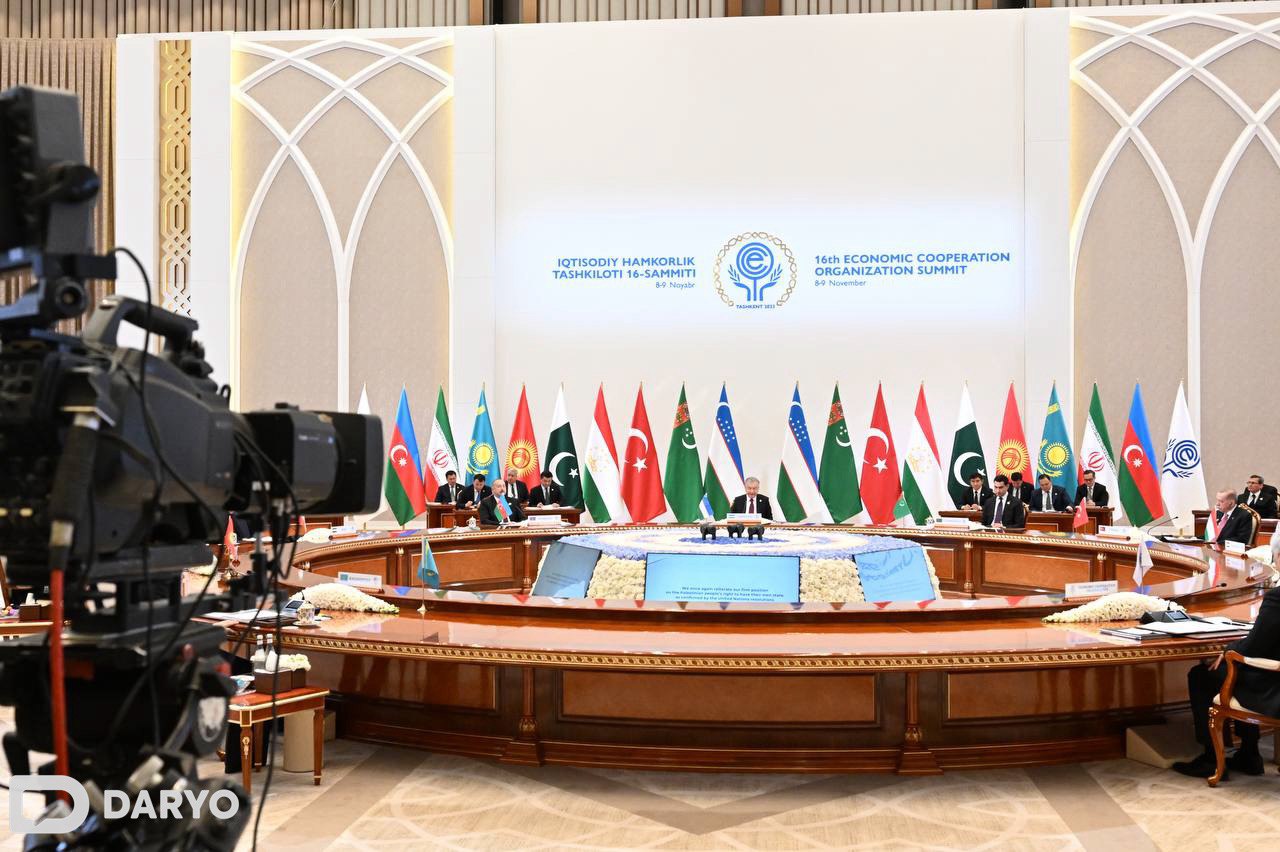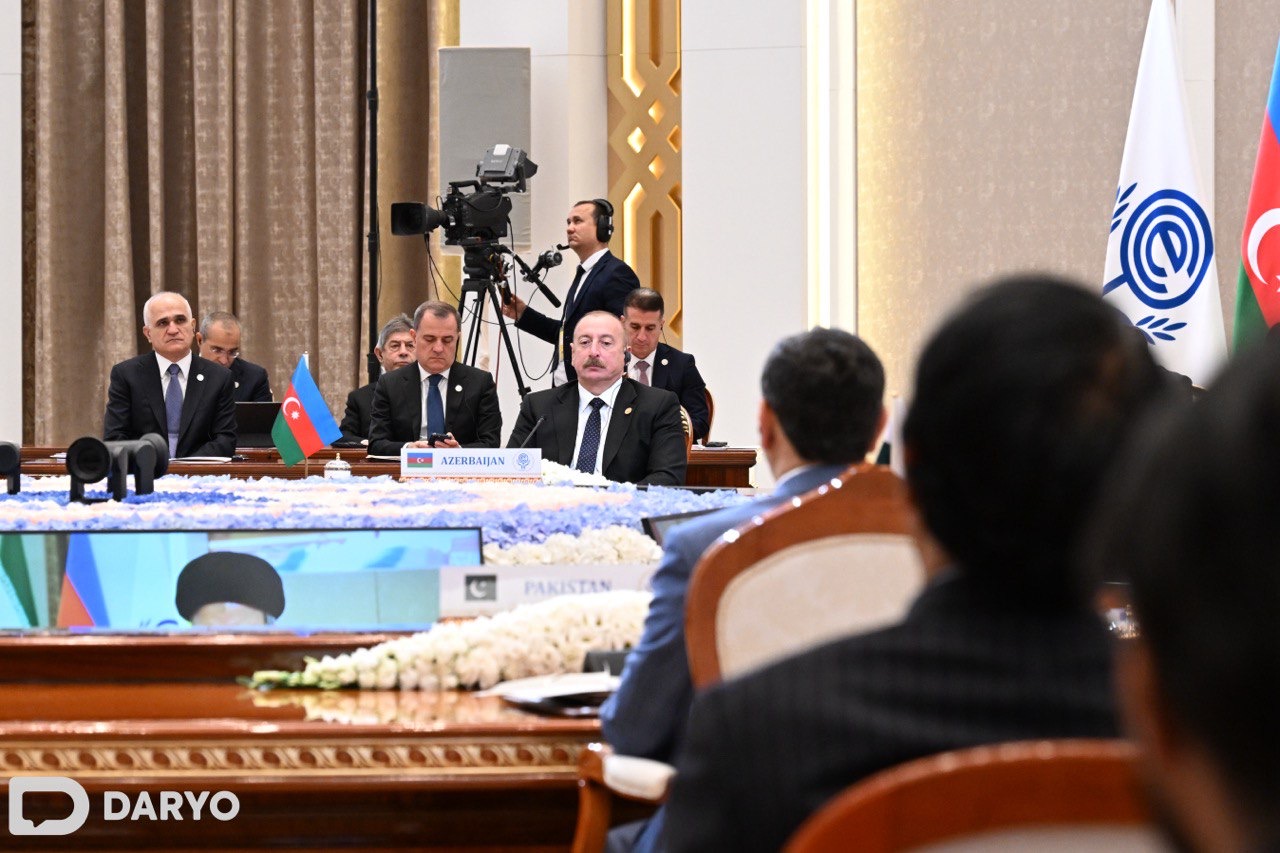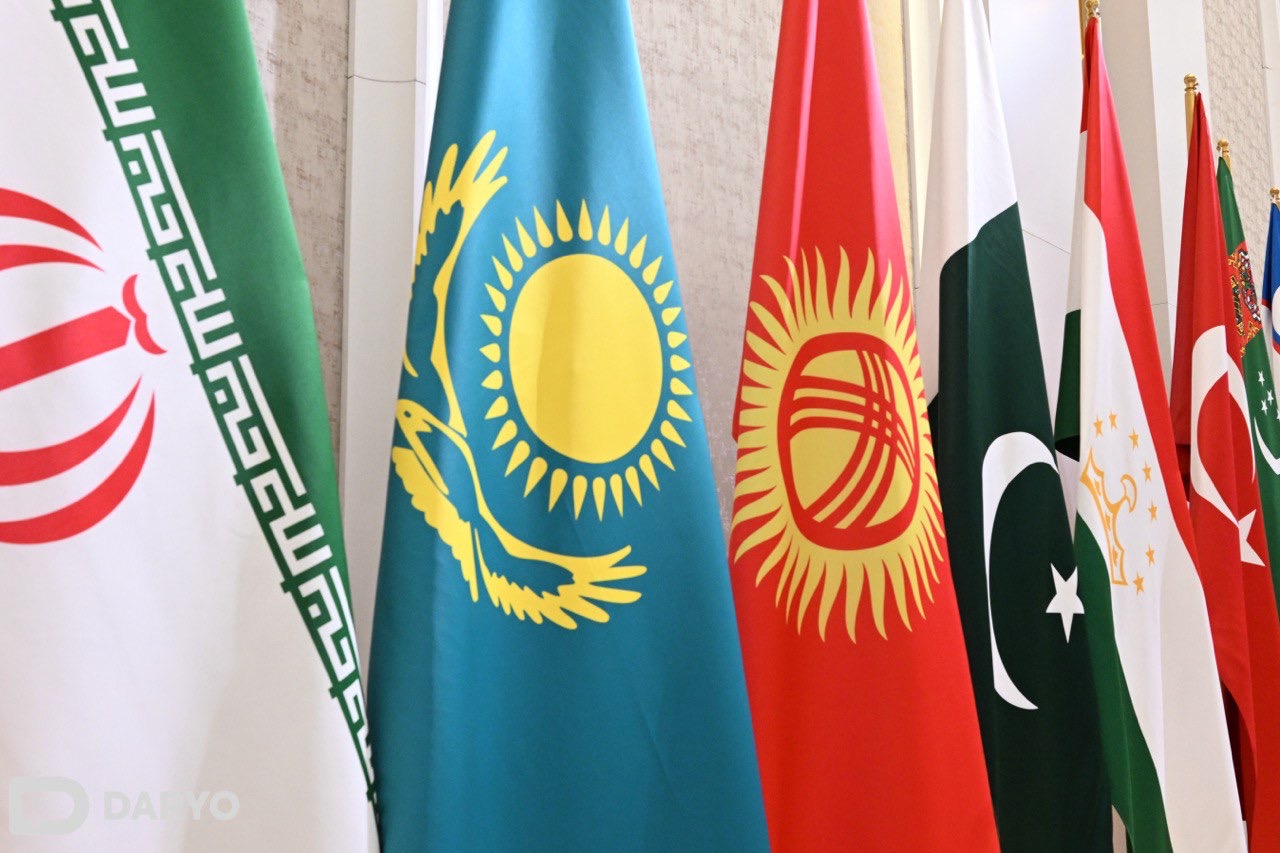In a landmark address at the 16th Summit of the Economic Cooperation Organization (ECO), President Shavkat Mirziyoyev of Uzbekistan outlined a comprehensive vision for the future, emphasizing the need to build on the ECO Vision-2025 and set new goals in the "Strategic Objectives of Economic Cooperation-2035."

- Promotion of Mutual Trade
President Mirziyoyev highlighted the challenges in achieving substantial progress in preferential trade agreements, with only 8% of the total foreign trade among member states. He proposed the adoption of ECO’s Trade Facilitation Agreement, aiming to facilitate trade, remove barriers, and embrace digitalization, projecting a potential twofold growth in mutual trade by 2035.
“Regrettably, the years of efforts to develop a preferential trade agreement have not delivered the expected results. There are still many restrictions and problems with barrier-free trade. We must openly admit this and take a new perspective to turn the situation into a positive shift.”

- Strengthening Transport and Communication Connectivity
Recognizing the landlocked nature of many member states, the President urged the optimization of transcontinental transport corridors. He encouraged participation in initiatives such as the China-Kyrgyzstan-Uzbekistan and Trans-Afghan multimodal roads and the "Uzbekistan - Turkmenistan-Iran–Turkiye” Transport Corridor.
“We need to fully utilize the potential of transcontinental transport corridors that pass through our territories and link us with major markets in the Asia-Pacific region, South Asia, the Middle East, and Europe. The launch of the China-Kyrgyzstan-Uzbekistan and Trans-Afghan multimodal roads in the coming future meets the interests of all member states,” President Mirziyoyev noted.
President Mirziyoyev proposed the establishment of ECO’s Digital Transport and Customs Office in Tashkent to coordinate modern systems effectively.

- Promotion of Industrial Cooperation and Business Ties
Aiming to increase mutual investments and deepen industrial cooperation, the President proposed a Program of Joint Actions in various sectors. He suggested collaboration with the ECO Trade and Development Bank and the establishment of an Interregional Industrial Exhibition within ECO, starting in Uzbekistan in 2024.
- Ensuring Guaranteed Energy Security
Addressing energy security, President Mirziyoyev emphasized the importance of harmonizing national energy strategies and developing renewable energy sources. Uzbekistan plans to create 25 gigawatts of renewable energy by 2030, with a 40% share in the energy mix. He proposed the establishment of a new Council of Ministers of Energy within ECO.

- Intensifying Contacts in Addressing Climate Change and Environmental Protection
The President expressed concerns over climate change and environmental issues, proposing the creation of a High-level Dialogue Platform for Ecology within ECO. He urged support for the Samarkand Declaration to combat sand and dust storms and invited participation in the Samarkand Climate Forum in 2024.
- Enhancing Cooperation in the Tourism Sector
President Mirziyoyev highlighted the tourism potential of the region, proposing Joint Tourist Routes and increased joint tourist programs under the “Silk Road” Tourism Brand. He suggested the establishment of a Consultative Committee on Tourism under the Secretariat of the Organization, with the first meeting planned in Shakhrisabz next year.

- Deepening Cultural and Humanitarian Cooperation
President Mirziyoyev emphasized the importance of cultural and humanitarian cooperation, proposing the organization of Culture, Arts, and Cinema Weeks, Creative Youth Festivals, and Innovative Cooperation Platforms. He expressed readiness to host events that would effectively promote relations among member states.
The ambitious agenda outlined by President Shavkat Mirziyoyev reflects Uzbekistan's commitment to advancing economic cooperation and addressing shared challenges within the ECO framework. The proposals aim to create a more interconnected, resilient, and prosperous future for the member states.
Comments (0)